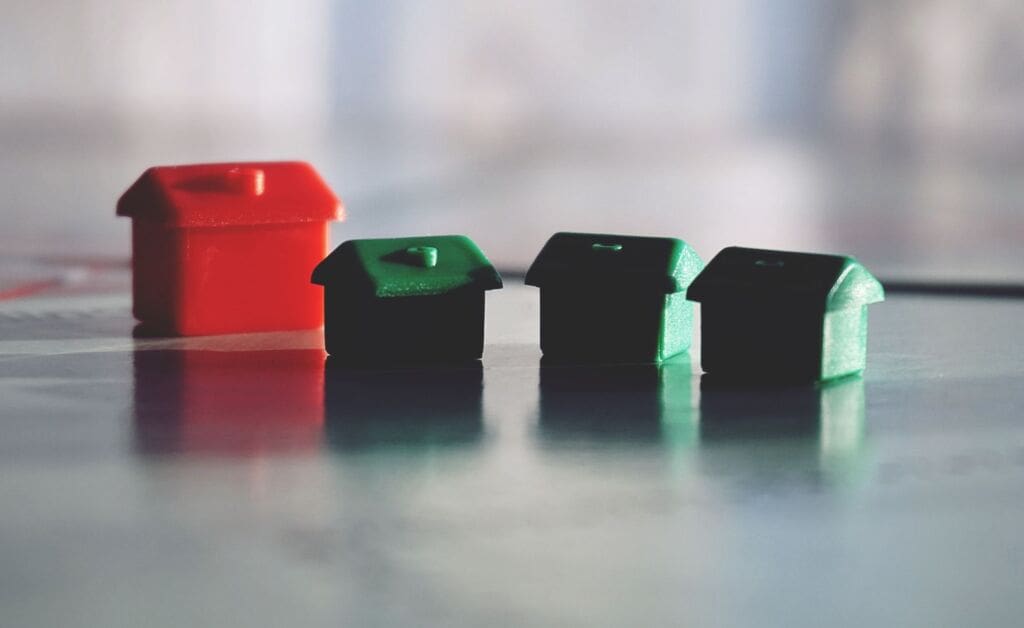“Buy low, sell high” is the foundation of all successful investing, particularly when it comes to real estate. Flipping refers specifically to buying a house and selling it shortly afterwards after some rehabilitation, hopefully at a significant profit.
The idea is so appealing that it’s the subject of many workshops, seminars, and reality shows. You’ll often see people joyfully proclaiming that they’ve gone from nothing to millions of dollars in record time. But is it really that easy?
In the real world, nothing is that easy. And profitable flipping has become more challenging recently due to changes in legislation and an unpredictable real estate market. That said, there are still plenty of opportunities for the right investor with the expertise and patience to make it work. In this post, we’ll talk about some of the risks and advantages of flipping houses in Ontario.
The right property is essential if you want to succeed as a real estate investor. You might find the perfect opportunity by browsing our featured listings right here.
Ontario House Flipping Can be Riskier Than You Realize
We might as well get the unpleasantries out of the way first. Once you are aware of the possible downsides and risks, we can talk more about the incredible opportunities and benefits house flipping can offer to a savvy and well-prepared investor.
If you’re planning to buy a house and later sell it at a profit, you should know that the process can be complex. If you’ve never undertaken such a venture before, the risks become amplified. Here are a few things to consider before seeking out your next investment.
Don’t Underestimate the Costs
First of all, renovations can be expensive. If you’re new to the game, it’s easy to underestimate just how much it will cost. These expenses add up even more with labour and material prices on the rise.
The ability to spot excellent value is the foundation of all of your success as a real estate investor, including when house flipping in Ontario! The posts below will help:
- Teardown or Renovate?
- What Housing Structure Is Best for Peterborough Investors?
- How to Spot the Perfect Real Estate Investment
Real Estate Values Fluctuate
The real estate market, though still considered one of the safest investments, is still volatile. There is no guarantee that you’ll be able to earn a profit when you are ready to sell the house.
Property values will almost certainly rise eventually, just not necessarily when you need them to. In the meantime, you have to carry all of the costs of owning the home, including the mortgage, utilities, and any property taxes for the year. If you fall behind, you may end up having to sell the house for very little profit or even at a loss.
Delays Happen
The whole process of buying a property and getting possession takes time. First, you need to identify a suitable contender that you can get at a reasonable price to allow for the costs of renovations. This alone is no easy feat in today’s market.
Renovating is also not a fast process. And we haven’t even talked about getting permits or dealing with labour shortages and supply chain disruptions. Delays don’t just mean waiting to realize a profit; they also can cost a lot of money.
If you decide to venture into the world of house flipping in Ontario, we recommend that you have a strong cushion for both your budget and your timeframe. Patience is a vital key to your success.
House flipping is only one opportunity in real estate. Here are some other ideas to expand your portfolio:
- The Beginner’s Guide to Investing in Real Estate
- Everything You Need to Know About Carriage Homes and Secondary Suites
- Stocks Vs Real Estate: What’s Better In A Shifting Market?
The Tax Implications Have Changed
Canada overall and Ontario in particular have been experiencing a critical housing shortage over the past few years. As a result, the federal government has implemented a new tax policy to try to discourage speculation in real estate. This could be bad news for anyone hoping to flip houses for a fast profit.
In the past, 50% of any income you earned by selling a house that is not your primary residence was subject to capital gains. The new policy brings the taxed amount to 67% on anything exceeding $250,000. This means house flipping just got a lot more expensive for a lot of people. However, it gets even worse for short-term investors.
If you resell a home after owning it for less than 365 days, 100% of any profits you earn are now taxed as business income. And you thought capital gains were exorbitant! Now more than ever, succeeding as a house flipper in Ontario is a long-term venture.
Earning a Profit Is Not Always Easy
The longer you hold a property, the more likely you are to resell it at a higher price than what you paid for it. Real estate values can and do fall over the short term. And there’s no guarantee that they will rise over time, although they always have. With houses in short supply, there’s no reason to expect that trend to change anytime soon.
Still, it’s important to understand that selling at a higher price does not necessarily mean earning a profit. It depends on how much you invest to rehabilitate the property before putting it back on the market. Add those costs to how much you pay to carry the property each month that you own it. These expenses add up, which is why it’s critical to run your numbers before making a purchase.
Financing Rules Can Be Stringent
Financing is one more consideration before we get to the joys and opportunities of flipping houses. If you’ve been through the mortgage application process when buying your primary residence, you know that it isn’t exactly a walk in the park.
The financing guidelines for an investment property can be even more stringent. You can get away with a lower down payment for your primary residence as long as the house costs less than $1 million. When buying an investment property, you need at least 20% upfront regardless of the price.
Interest rates can also be higher as the lender is taking on more risk. In addition, traditional banks will typically cap how much they are willing to lend based on your equity. You may have to look to private lenders or other sources to cover the cost of your investment property, which can present a new level of risk to consider.
Strategic purchases are an essential part of successful real estate investing. The posts below can help:
- Why Work With Jeff & Katie to Buy Your Next Home?
- How Can You Make Your Home Offer More Irresistible?
- How Do Interest Rates Impact Buying Real Estate?
Who Should Flip Houses?
House flipping can be extremely profitable and even fun. It also requires a certain amount of capital and no small level of risk. As such, it is not for everyone. This path may not be ideal for first-time buyers or novice investors, but there’s no one-size-fits-all philosophy. With the right support team behind you, who knows what you can accomplish?
The first steps are to take stock of the resources you have available and decide if you’re ready to commit to the long term. Beyond access to capital, flipping houses consistently and successfully depends on a strong financial acumen and a dedication to constant growth and learning.
You’ll need to learn to manage a budget and analyze market statistics to know what property has potential and when you should walk away. In addition, remember that you will need to take some smart risks, and it’s important to arm yourself with knowledge and proceed with caution. An “all or nothing” attitude is best left to reality shows.
A smart investor also has exceptional organizational ability, manages their time well and can troubleshoot problems quickly. Does this sound like you? If so, house flipping just might be your path to financial stability and security.
Should you rent your investment property rather than flipping it? The posts below will give you something to consider:
Rely on Expert Advice
No matter how much experience you have buying or selling properties, you will need to surround yourself with experts. Start by connecting with a real estate agent with specific and extensive experience working with investors.
Sourcing properties, market research, and negotiation all have to take place at a higher level to ensure you can sell your property at a profit. It’s a team effort. Before you get started, you’ll want to ensure you have connections with various skilled professionals you can count on. A bonus of working with Jeff and Katie for your investments is that you get access to every expert you will need, including:
- Contractors
- Project Managers
- Real estate lawyers
- Mortgage brokers
- Accountants
Be Selective About Your Acquisitions
Acquiring the right property can make or break your investment. You have to consider the purchase price, how many renovations are needed, as well as how much it will cost to hold the house until you find a buyer.
Properties like these aren’t easy to find, especially in a competitive market. It takes due diligence, professional guidance, and a lot of patience to uncover. Here’s what we’re looking for:
- Good bones
- Potential for improvement
- Free of hidden defects such as outdated wiring, plumbing, or insulation. Any of these can make your investment not just unprofitable, but also unsafe.
- A desirable neighbourhood with popular amenities
- Potential for a high resale value
There are also some legal aspects to keep in mind before you begin placing offers. The last thing you want is a property that seems to be a great deal only to find that you can’t get the permits for the renovations you want to perform. Your real estate agent can network on your behalf, often getting you early access to suitable listings.
What Types of Houses Make for Good Flips?
Real estate trends and preferences can change, so it’s important to be mindful of what today’s buyers are looking for. This can be challenging in a market that’s constantly evolving. However, certain attributes remain timeless. In addition, every buyer will have different priorities.
- Open-concept layouts are in demand, but some buyers still prefer the privacy of a closed plan.
- In general, detached homes like bungalows, side-splits, and older houses are ideal if the numbers check out.
- Condos and townhouses can also present opportunities, especially for buyers with slightly less capital.
Understand the 70% Rule
The 70% rule is a guideline real estate agents and investors abide by, and is especially critical when flipping houses. Though it is less well known than it once was, staying true to the principle can help ensure your profitability. Here’s how it works.
- ARV (After Repair Value) refers to how much the home will be worth after you’ve renovated it.
- Multiply the ARV by 70%. This is the absolute maximum you should pay for the property, even factoring in your renovation costs.
- Estimate how much you will need for renovations. Now subtract that from the previous number in step 2.
- This is the maximum amount you can invest if you hope for a profitable flip.
Now that you know the principle, let’s take a look at how it might play out in the real world.
- Imagine a house with an ARV of $750,000. After inspecting it more closely, you estimate that $50,000 should cover the costs of any necessary improvements.
- 70% of your ARV works out to $525,000 ($750,000 x 70%).
- At these numbers, your maximum purchase price is $475,000. ($525,000 minus $50,000).
- Don’t forget that you’ll also need to account for any closing costs, holding costs, and real estate commissions.
Knowing your budget is one thing. Finding a property to fit it is the real challenge, especially as real estate prices continue to rise due to growing demand. That said, your real estate agent may be able to point you to opportunities in estate sales, foreclosures, distressed properties, or homes in up-and-coming areas that could represent excellent value.
Plan for the Long Term
The old adage “look before you leap” definitely applies when it comes to flipping houses in Ontario. Before committing to any property, always run the numbers carefully, then double and triple check them.
In addition, remember that house flipping is one part of your portfolio; you don’t necessarily want all of your eggs in one basket. Diversifying your investments can protect you from risk and market fluctuation and help you create steady income streams rather than occasional paydays. Look for long-term value rather than short-term gains.
Once you’ve acquired and renovated your property, the next step is to sell it at a profit. The resources below can help you maximize your results:
- What Home Features Matter Most to Buyers?
- When Is the Best Season to Sell Your Peterborough Home?
- How Selling an Investment Property in Peterborough is Different
Think of the Ethics
What are the ethical implications of flipping houses in a market that is becoming increasingly unaffordable? Fairly or unfairly, flippers were blamed in large part for the crisis we are facing today. And done wrong, it can artificially inflate property values and further deplete the already short supply.
Unethical house flipping takes unfair advantage of distressed sellers by offering a pittance for their property. The exploitation continues by overcharging buyers for a house with low-quality renovations. This is also why governments have stepped in to discourage short-term speculation.
Contrary to popular opinion, however, flipping houses can be both profitable and ethical. What’s the difference? Imagine you find a distressed homeowner who needs to sell quickly.
The house needs repairs, but they don’t have the capacity or the funds to do it. In this case, you can acquire that property for a fair price because you’re taking all of the work off their hands.
High-Value Vs Low-Value Contributions
With a high ethical standard, house flipping can be a positive contribution to our community. Performing high-value renovations can transform a dilapidated house into a beautiful home, thus adding to the much-needed supply. Committing to fair practices also helps to stimulate the local economy by providing income for contractors and other tradespeople. Your intent and the outcome are what make the difference between a high-value investment and what could rightly be called a scam.
- Be assertive rather than aggressive when negotiating with sellers and offer a fair price where you can still make a profit.
- When the time comes to sell, be transparent with the buyer about the condition of the home and what renovations you have actually performed.
You can fairly and ethically make a substantial profit or even become wealthy over time. The difference is that you are creating value rather than exploiting people. Knowing the market, committing to high-quality work, and offering fair prices to buyers and sellers will not just protect you from penalties and fines; it will also allow you to sleep soundly at night.
Take a Professional Approach
House flipping in Ontario is serious business, and you should treat it that way. If you want to enjoy long-term success, you must guard your reputation carefully. Start by recognizing the value of relationships.
Local real estate agents, tradespeople, as well as buyers and sellers will soon get to know you. If you are known for treating people fairly, your network will grow, and so will your business. Done right, your investment can be a factor in retirement planning and legacy building for future generations.
Do you have questions about house flipping or other real estate investments in Ontario? Our Peterborough real estate agents are happy to guide you no matter what your experience level. Reach out to team@jeffandkatie.ca or call 705-243-9797 to start a conversation today.
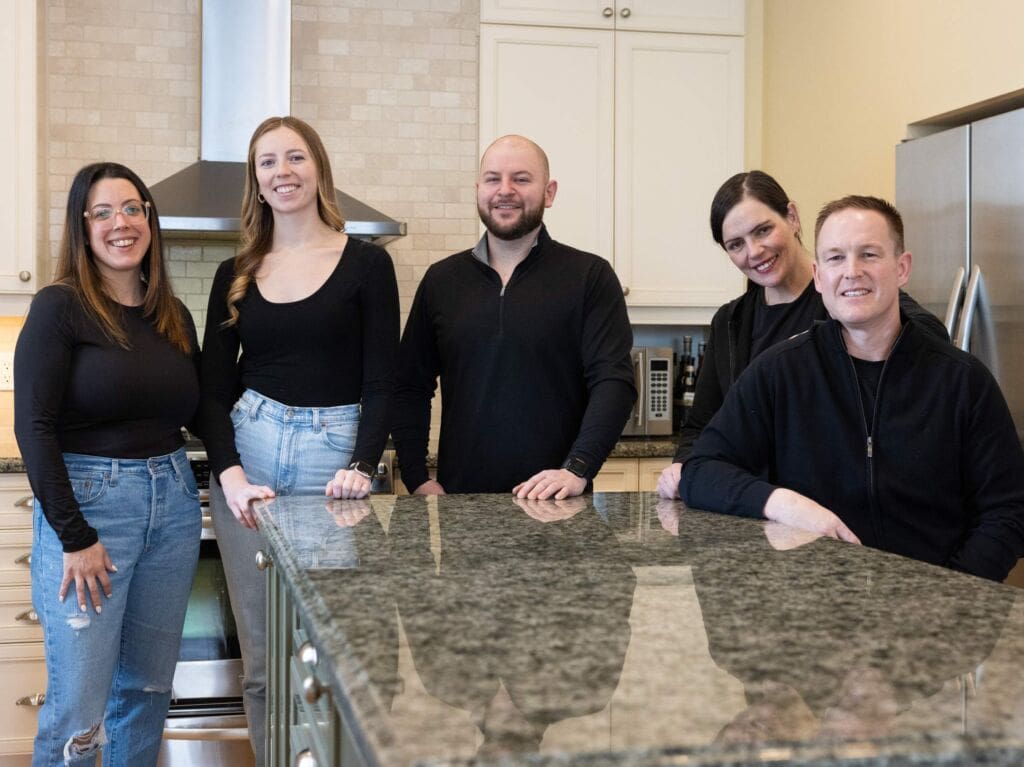
Let Us Guide Your Journey
Curious about your real estate options? Relocating to the Peterborough area? Our experts are ready to help.

